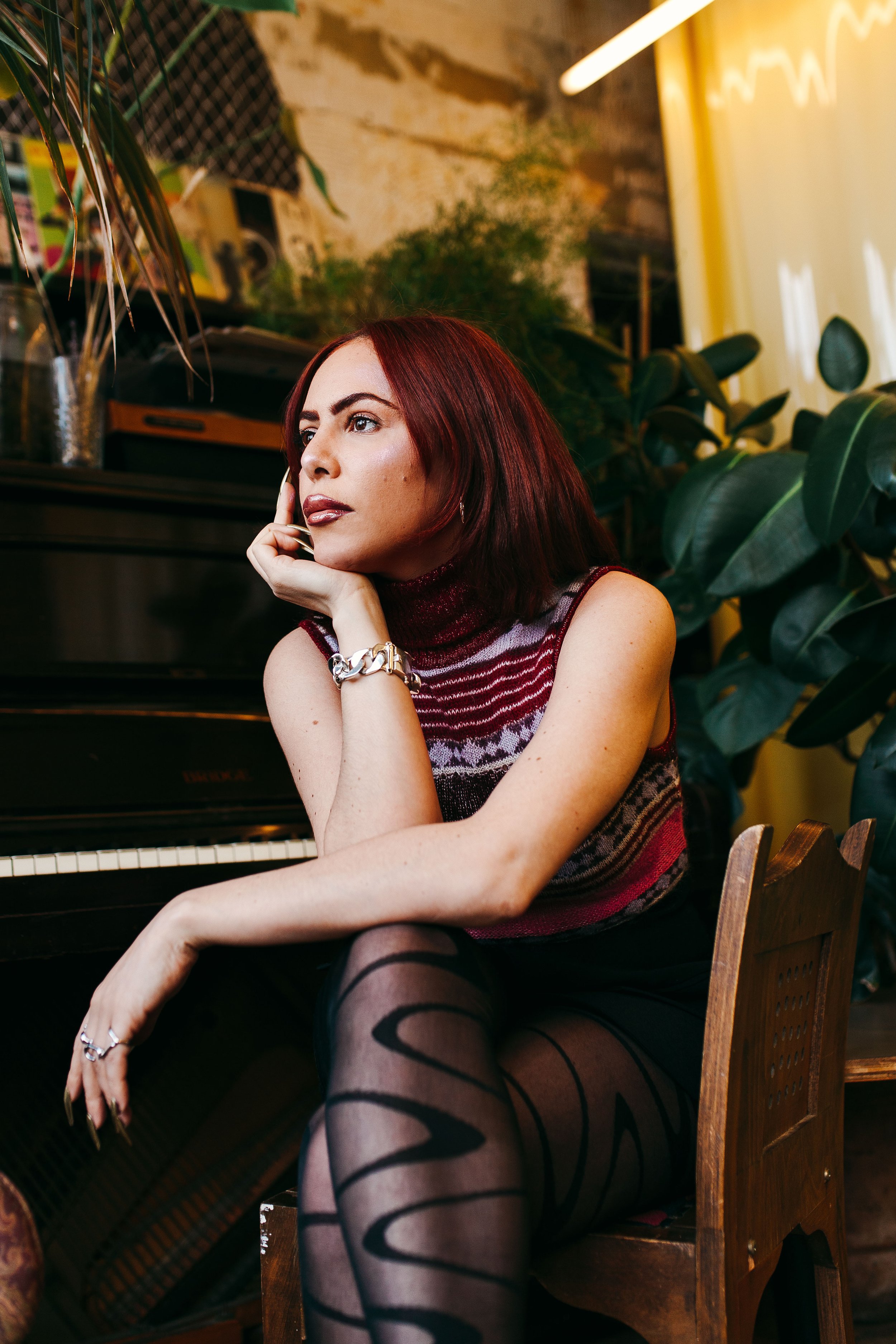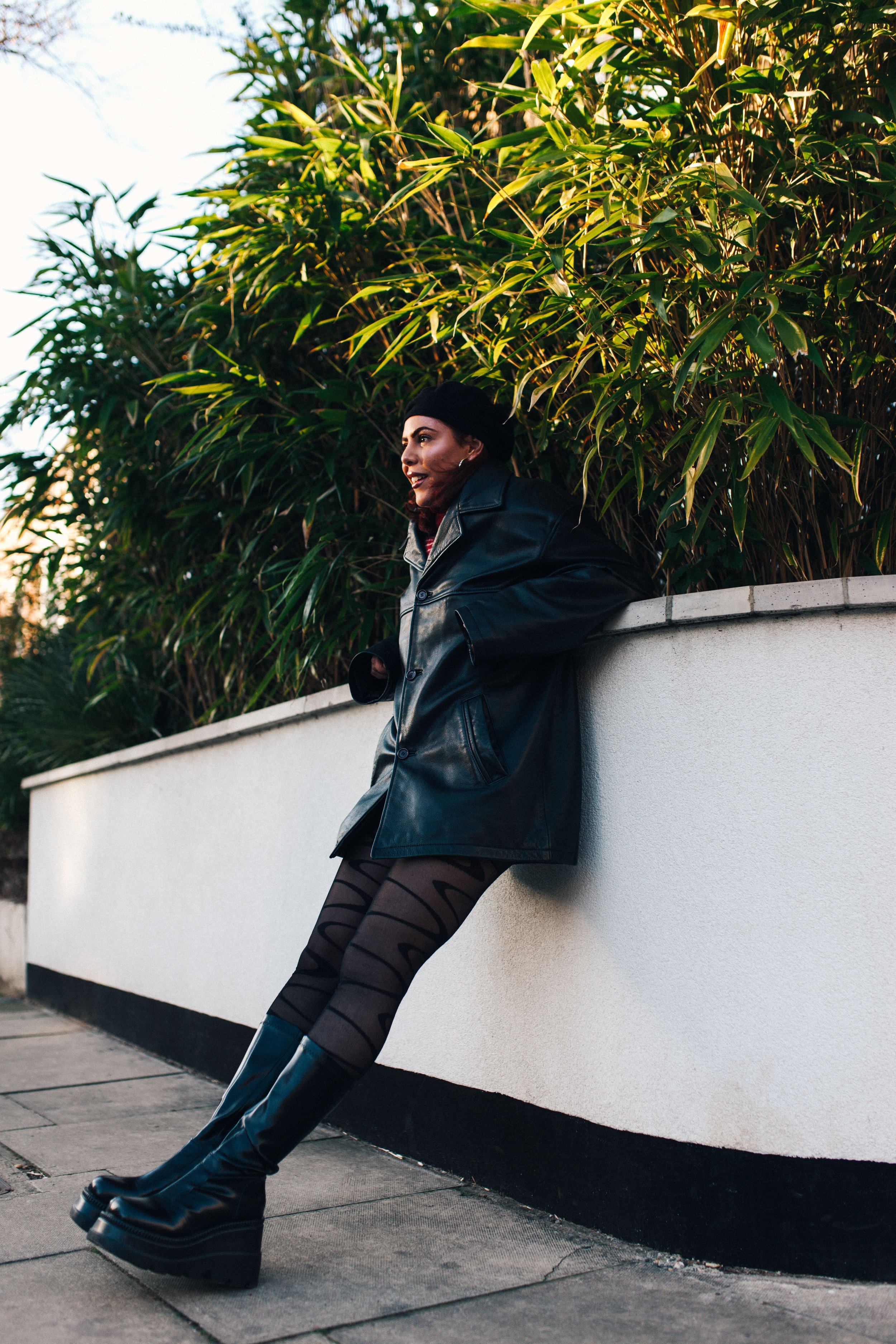R&B artist Sabrina Bellaouel’s lineage of female storytellers and “f*cking warriors”
Sabrina Bellaouel © Emily Almodovar, AZEEMA 2023.
Words by Dalia Al-Dujaili.
Sabrina Bellaouel’s trips to the motherland were always filled with music. From weddings to gatherings at her aunties’ houses and trips to the beach, she was immersed in rai, Egyptian music and Lebanese music, which fed her creativity and aesthetics. “And at the same time, I was living in Paris, with lots of different communities”, Sabrina tells me. Born, raised and based in Bagneux, outside the southern périphérique of Paris, has meant that her sonic blueprint has been injected with the kind of eclecticism one only finds in the tastes of diaspora artists. Growing up, she was “listening to R&B, rap, gospel and choir music”, she reminisces. “I was very connected with the singing of the negro spiritual. I listened to a lot of electronics like Radiohead and Rammstein and I explored so many different things becauseI was just curious about them”.
I meet Sabrina whilst she’s on a high – having released two EP’s, ‘We Don’t Need To Be Enemies’ and ‘Libra’, to acclaim, she’s now riding out the release of her debut album Al Hadr, eager to remind us there’s no time like the present. She fuses trap and alt-R&B with elements of trip-hop to tell the story of a lessening love, with storytelling serving as a north star. In order to add her own sense of self and French upbringing to her beloved rai and Algerian music, she rhymes in English, French and Arabic, where Sabrina not only explores love and a fusing of cultures, but her faith too.
Sabrina Bellaouel © Emily Almodovar, AZEEMA 2023.
As the artist has grown, God has come to play a major role in her creative expression. It’s no surprise, then, that she tells me she studied gospel music, which she transferred onto Al Hadr with spiritual and poetic meditations breaking up the electronic flow of the album, as well as drawing on her influences from punk and house music, and taking leaves out of the books of Aliyaah, Sade and Timbaland.
Muslim faith has also sewn her tight to her family – the artist is clearly moved by her female Amazigh ancestry. Sabrina inherited a love of North African local instruments from her mother’s southern desert upbringing, rich in the sound of the bendir drums and the oud. Whilst less organic electronic drums — the origin of the samples of drum machines found in Sabrina’s music — dance alongside wisps of woodwind, strings, keys and the artist’s own field recordings, or ‘found sounds’. Sabrina is also lucky enough to count herself as the granddaughter of a rebel: her grandmother, who smuggled guns for soldiers during the French-Algerian war, serves as the inspiration for Sarbina’s involvement of Algerian dance in her multidisciplinary live performances. “She got caught by the French military and they tortured her. She lost one eye”, Sabrina recounts to me, “She was a fucking warrior”.
Although her heritage and lineage play vital roles in the artist’s understanding of who she is and what music she wants to make, she’s also keen not to be “too stuck in the past”. She tells me her family don’t talk about their Algerian past too much, “they emigrated to France to cut ties with their traumas and they wanted to offer themselves and their kids another life”. This is what her mum and my dad taught her and Sabrina says she’s “forever grateful” that she’s still discovering who she is through her mother. With nostalgia comes sadness, the artist tells me, but musical nostalgia has served as a way for Sabrina to connect with her mother. “I pick Algerian songs and I ask, ‘Oh, mum, where were you when you discovered this?’ She's like, ‘Oh, I was with your grandfather and it was during the Black Decades’, (the eleven-year period of civil conflict in Algeria) and then she gives me bits of her experience. So Algerian music… It's really a way of healing people”.
It’s clear from her eclectic and wide-ranging taste how much she relies on constantly re-learning and re-immersing herself in new sounds in order to inspire her. “My sound is constantly evolving”, she tells me, “because I'm just drawn to so many things. I embrace everything and I guess all these little ingredients or components make me who I am right now. I’m just creating the music that I want to hear”. With upcoming gigs at esteemed festivals and venues including Primavera Sound, Sonar, Berghain, her formula is clearly working, but making music for herself first wasn’t always the default. She used to make music in order to make others around her proud, but now, “I just want to make myself proud, and then make my people proud”, she asserts. “If you create things that make you proud and you’re happy about it, then the people who really love you will be happy with you”. That’s why Sabrina tells me she’s on a journey now, one which is committed to “reverse engineering. It's really like it's a rebirth”.
Follow Sabrina here.



